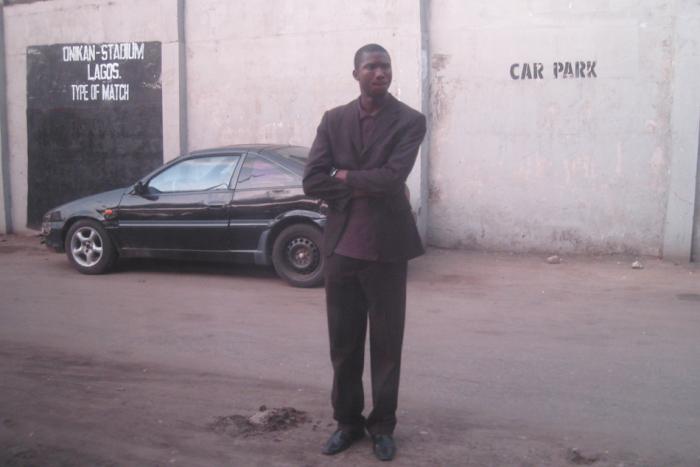Credit Freud with turning confession into a modern fetish: repression is bad, and healing comes through self-revelation. We’re all wounded, but if you say so out loud, within earshot of others, your soul shall be healed. The Church started it: your intention must be witnessed by a third party and judged in order for you to advance, from sin and anxiety, to grace.
Two people in love sit down for a meal together. A culture born of religious tradition, Freud, and six decades of television (where dialogue is everything) leave them no alternative: they have to talk about it. Minute by minute, they must understand each other through question-and-answer, a gentle (or otherwise) ongoing interrogation: tell me what’s on your mind so I can get it. It occurs to neither that love can thrive in silence.
The trouble here is the imperative to “understand”: confession culture wants us to be transparent (blindingly so) for our own benefit, so others can understand us. It assumes the U-word is even possible. But as Philip Roth puts it in American Pastoral, “the fact remains that getting people right is not what living is all about anyway. It’s getting them wrong that is living, getting them wrong and wrong and wrong and then, on careful consideration, getting them wrong again. That’s how we know we’re alive: we’re wrong.” Despite exhausting attempts to prove otherwise, through talk and testimony and interrogation, we can’t know each other, probably because we can never fully know ourselves. And yet, love happens anyway. This mystery, and the doomed impulse to solve it, is at the heart of American writer Dinaw Mengestu’s new novel, All Our Names.
Isaac and Helen meet in a small town called Laurel, in the American midwest, some time in the early ’70s. Isaac is African and has arrived in the States under a false passport. Helen is a social worker, assigned to his case. They fall in love. The context is complicated. Isaac was a student in Uganda at the start of a civil war and has escaped to America not with an emigre’s plan to succeed, but to save his own life. Helen is coming out of her shell, daring herself to take risks, while Isaac is digging deeper into his own, for reasons he won’t discuss. But the reader knows. Mengestu structures the book as a he-said, she-said series of alternate chapters from Isaac’s and Helen’s point of view. At times it is reminiscent of Russell Hoban’s Turtle Diary in which two lonely people speak not so much to each other, but to the reader or, more to the point, to themselves.
In the same way, All Our Names reads as twin testimonies in which Isaac and Helen reveal to us what they can’t, or won’t, reveal to each other: for Isaac it’s his war story, how his dearest friend and mentor led him from radical campus politics to the bloody front lines; for Helen it’s her struggle to figure out this mysterious young man who is, inexplicably to her, “like someone out of an old English novel.”
The closest Helen gets to the story of Isaac’s past is when he talks about the long walks he took in his birthplace, in Ethiopia, before he wound up in Uganda, first as a student, then as a witness to atrocity. “I thought eventually I would find a house or a street that seemed to have been made just for me,” he says. “I think I have walked more miles than just about any man I know, and I have learned that if I were to walk every day for the rest of my life, I would never find such a place. That is nothing to be sad about. Many people have it worse. They dream of belonging to a place that will never have them. I made that mistake once.”
The last line dangles. By the guidelines of confession culture, this would be Helen’s opening: what do you mean you made that mistake once? What happened? She might feel he owes her an explanation, for the sake of the health of their relationship, such as it is. But she resists. The impulse to therapeutic talk gives way, instead, to silence. It’s a remarkable choice given the conventional wisdom that silence, in a relationship, is akin to a sin of omission: if he’s not talking, it’s because he’s hiding something. And whether that something is a past trauma, heartbreak, an error in judgment, or an embarrassing high-school haircut, it can only be redeemed through disclosure.
But here’s the problem: disclosure and confession can add up, over time, not to deepen romantic mystery but to deaden it. It’s possible to know too much about someone and lose track of what drew you to them in the first place. Under the pressure of interrogation, the mythical right to know everything, love crumbles: research replaces passion. Love becomes an empirical process of collecting evidence to match up against fantasy, with predictable results: the two rarely come together. Of course communication matters, but when it becomes an obsession, a cure-all, we can end up like frogs in the biology lab: dissected but no longer recognizable.
“Just as I wanted him to talk,” says Helen in All Our Names, “I needed him to stop. I didn’t know it earlier, but this was what had governed our silence—not that we couldn’t understand each other but that we could lay ourselves bare and in the end find a stranger sitting on the other side.” As Roth says, it’s only when we get each other wrong that we know we’re alive. But it takes a strong stomach to accept this, and to love anyway.
Helen knows that despite the Isaacs she’s dreamed up, the one sitting across from her, all flesh and enigma, whom she seems always to get wrong, is the only one who matters. And Isaac, it turns out, is not even his real name. She is learning that she doesn’t have to know everything about him to love him. That, too, is nothing to be sad about. All Our Names has been described as an immigrant’s tale, or a story of race in America during the civil rights movement, but it’s also a richly told love story that promises love can thrive in silence.
The Lost Library: forgotten and overlooked books, films and cultural relics from Tom Jokinen’s overstuffed Ikea bookshelves.






